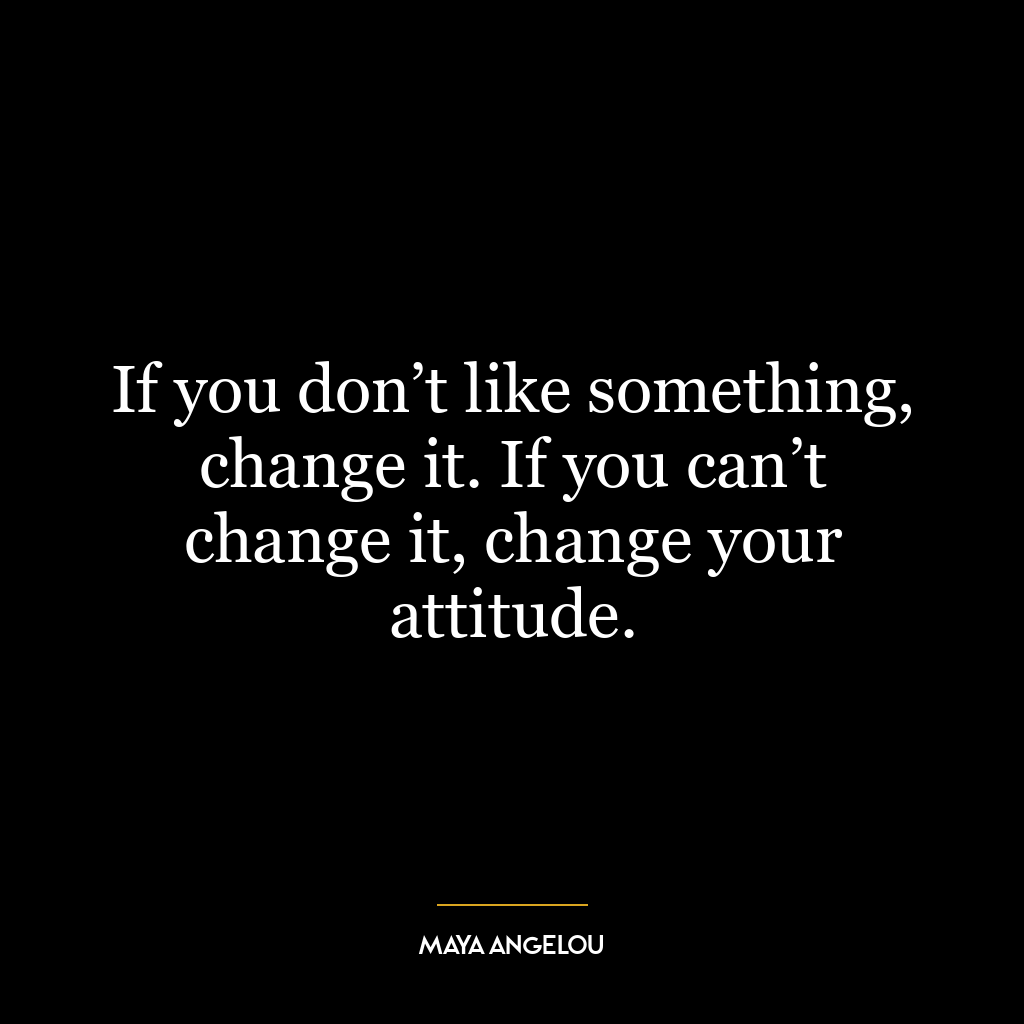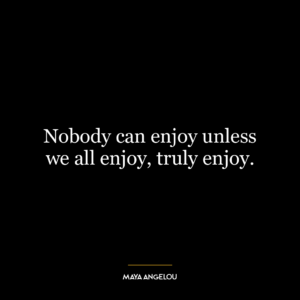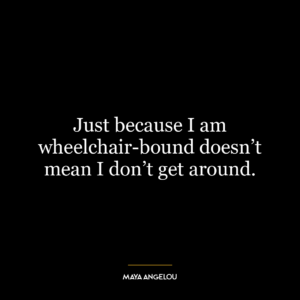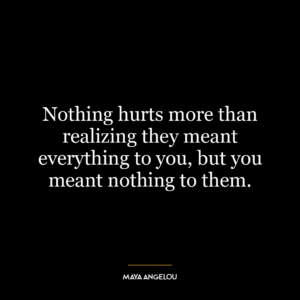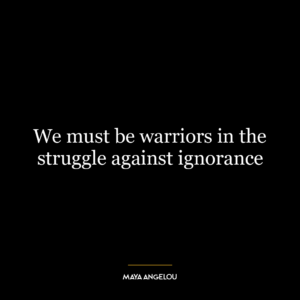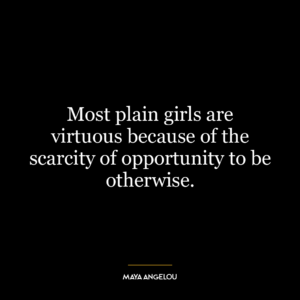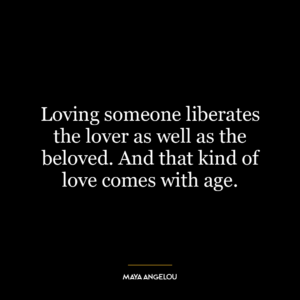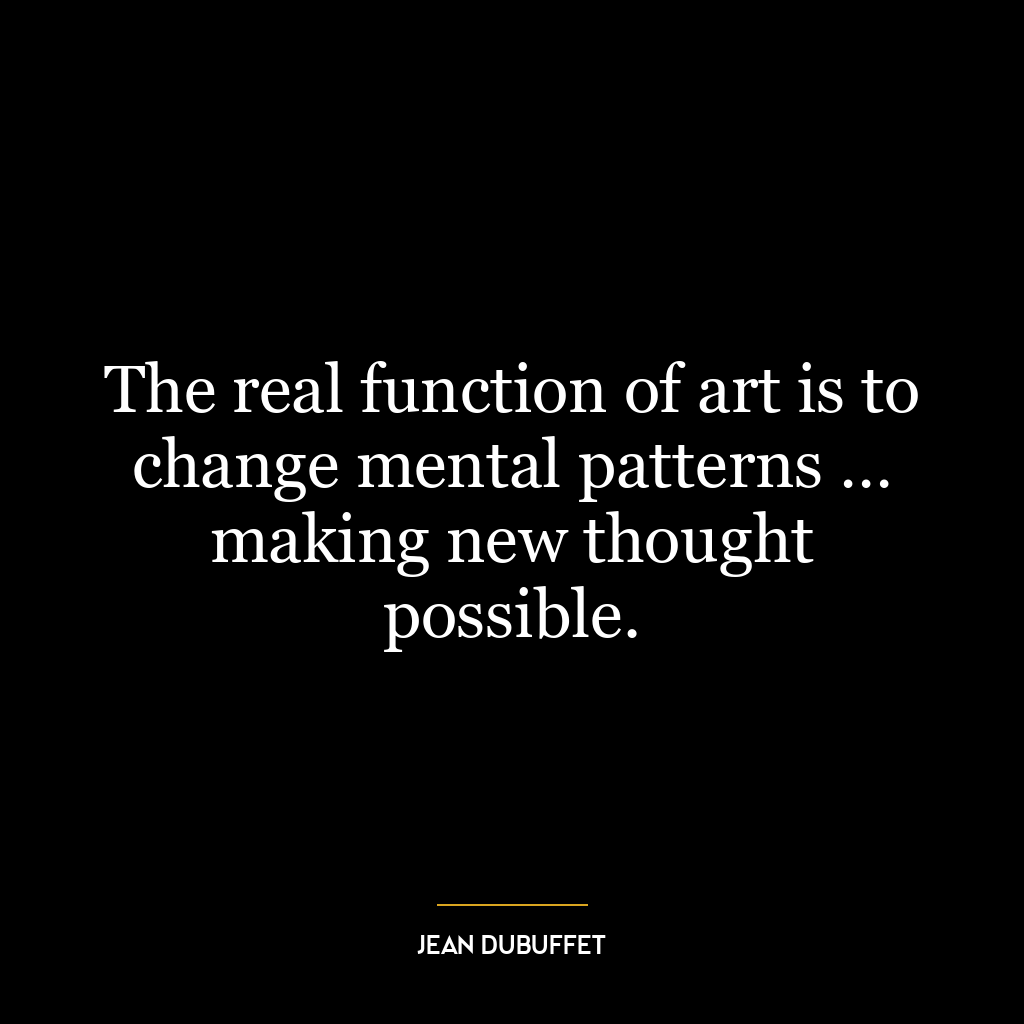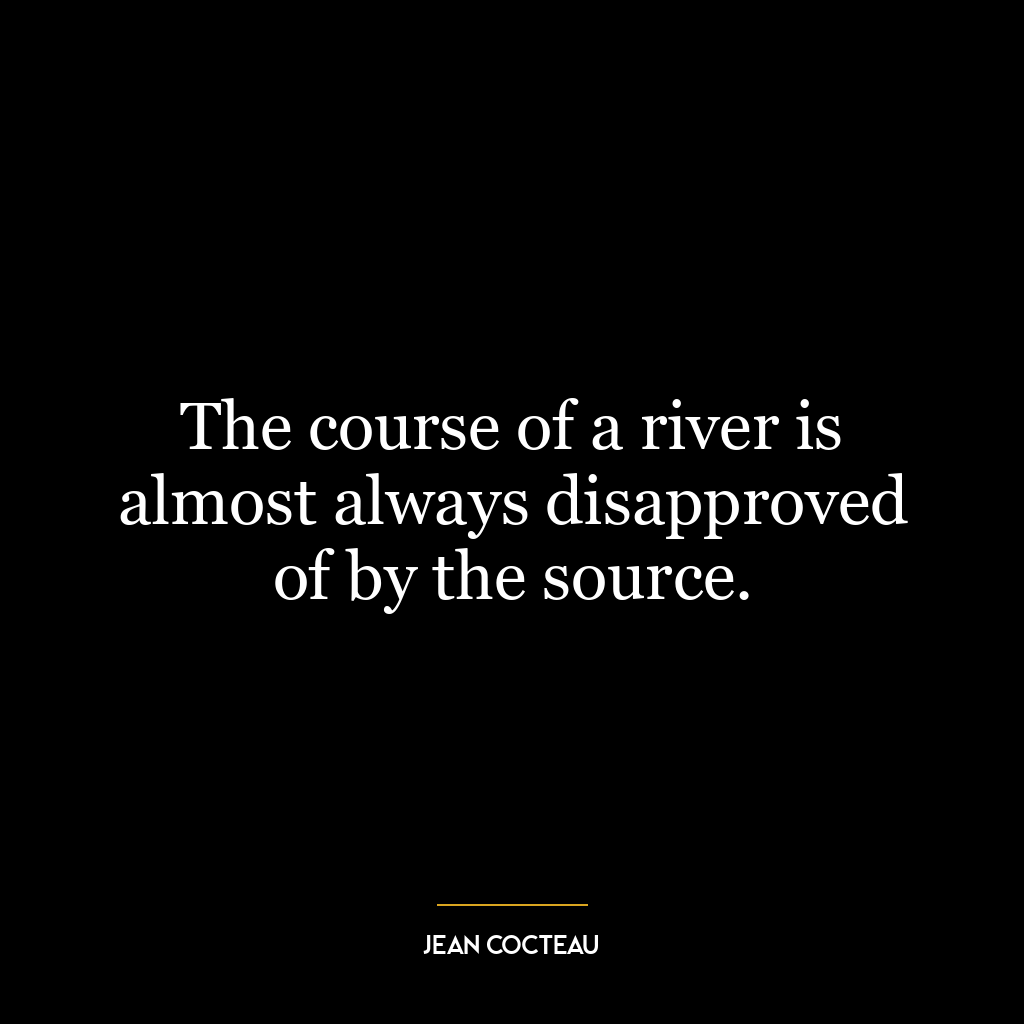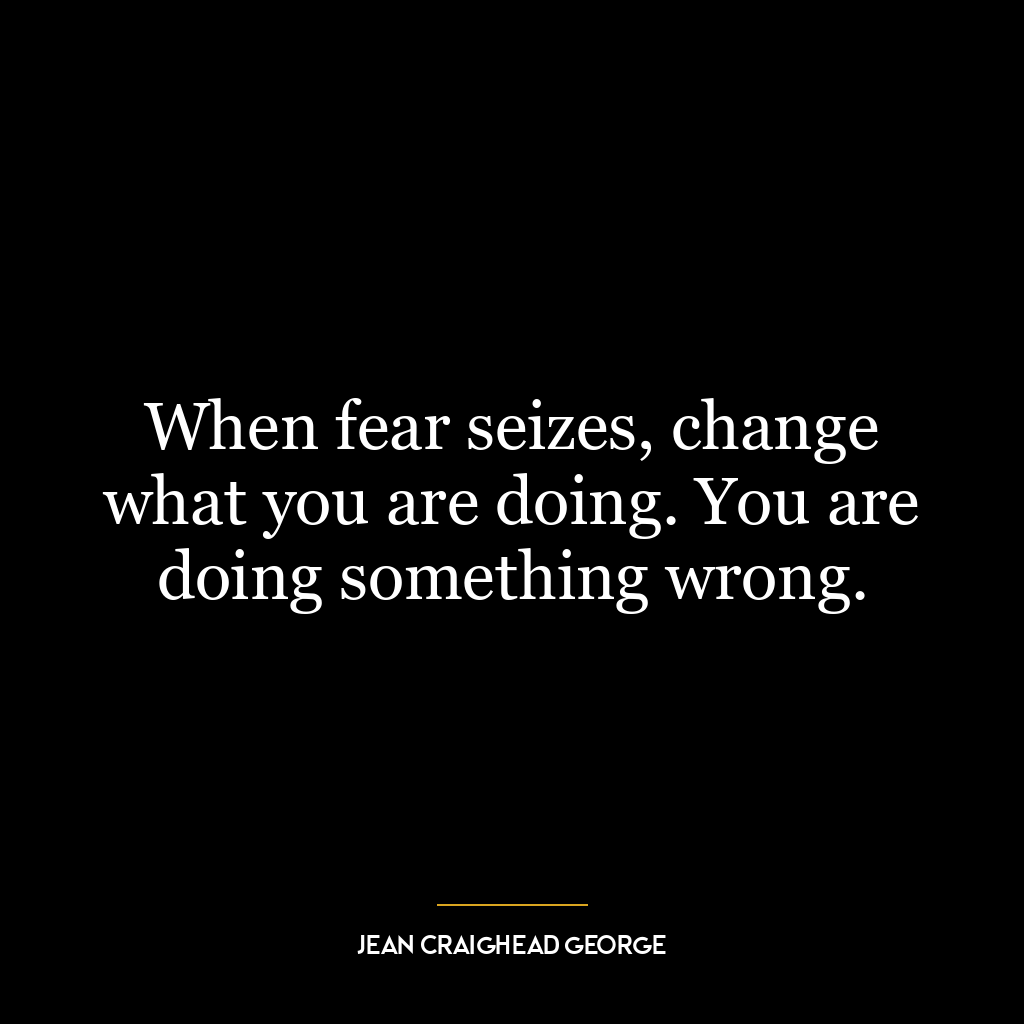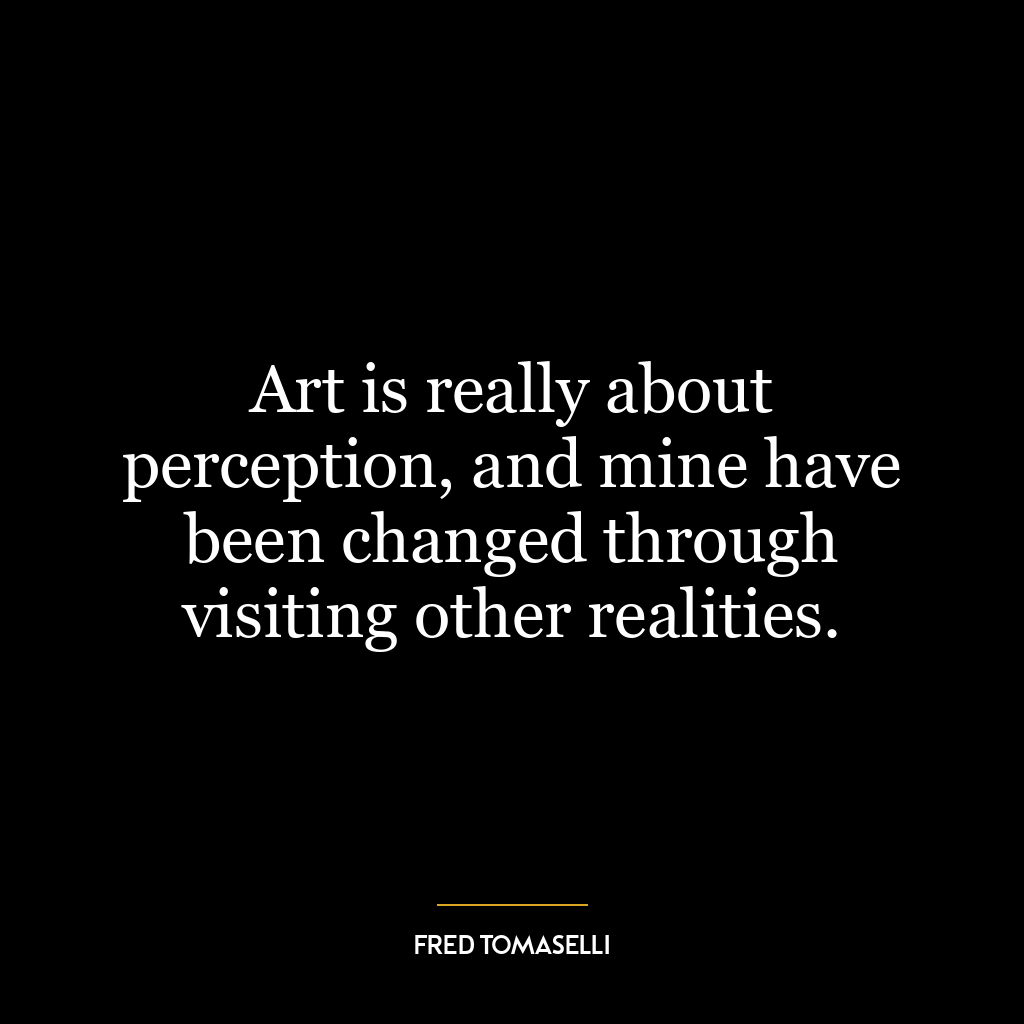If you don’t like something, change it. If you can’t change it, change your attitude.
This quote succinctly captures the essence of personal empowerment and adaptability. It suggests that when faced with an undesirable situation, one should first attempt to change it. This could be anything from a toxic relationship, an unsatisfying job, or even a personal habit that’s detrimental to one’s well-being. The idea is to exercise personal agency and take control of the situation to make it better, rather than passively accepting it.
However, the quote also acknowledges that not everything is within our control. There may be circumstances that are beyond our ability to change. In such instances, it suggests that we should change our attitude towards the situation. This could mean accepting the situation, finding a different perspective to look at it, or focusing on the things we can control, like our emotions and responses. The emphasis here is on adaptability and resilience, the ability to adjust oneself in accordance with the reality of the situation.
In today’s fast-paced, ever-changing world, this idea is more relevant than ever. We are constantly faced with situations that require us to either take action or adjust our outlook. For instance, in the face of climate change, we can either contribute to the solution by adopting sustainable practices, or if the larger policy changes are beyond our control, we can adjust our attitude by accepting the reality and doing our individual part without frustration or despair.
In terms of personal development, this quote is a powerful reminder of the importance of self-efficacy and emotional intelligence. It encourages us to take charge of our lives and make necessary changes for our personal growth and happiness. At the same time, it teaches us the value of resilience, acceptance, and positive thinking when faced with situations that are beyond our control. It suggests that our well-being is not merely determined by the situations we find ourselves in, but also by how we choose to respond to them.

